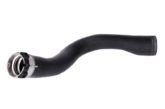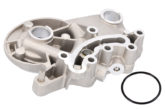
Oil is a turbocharger’s friend. With a little care, you can make sure it doesn’t become its enemy.
Once exclusively fitted to trucks and performance cars, turbochargers are now commonplace. 90% of diesel passenger cars are turbocharged, and an increasing percentage of petrol cars.
 The main cause of turbocharger failure is due to oil problems, so a few pointers on how to protect and prolong the life of turbochargers should be worth reading.
The main cause of turbocharger failure is due to oil problems, so a few pointers on how to protect and prolong the life of turbochargers should be worth reading.
Today’s turbos are complex, but they’re still inherently reliable. Less than 1% of turbo failures are due to a fault with the turbo itself, but over 90% are oil-related.
An aggressive environment
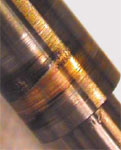
Correct, clean oil is vital for turbos. A turbine shaft spins up to 6,000 times every second (an amazing 360,000 rpm), in temperatures of up to 950°C, and is protected by just a thin film of oil on the shaft bearings. Any problem with the oil will damage the bearings or oil seals, inevitably leading to turbo failure.
With nearly 40 years in the turbocharger business, BTN Turbo has examined countless dead turbos. All this experience has clearly identified three oil-related turbo killers: oil leaks, oil starvation and oil contamination.
Stop the leak
Oil leaks are the simplest to explain: any leak that cuts off or drastically reduces the supply of oil to the turbo bearings will cause problems. Running a turbo without oil for five seconds is as harmful as running an engine without oil for five minutes.
Keep it flowing
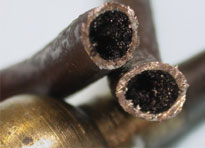
Oil starvation can be the result of leaks or other faults, such as blocked or kinked oil feed pipes. Yet the cause could also be outside the oil system. The oil seals at either end of the turbo bearing shaft rely on positive air pressure to keep them in place. A faulty or missing air filter or insufficient exhaust back pressure will result in either too much or too little air pressure, so the oil seals start to leak and the bearings are starved of oil. The consequences are the same – the turbo will be damaged and ultimately fail.
Keep it clean
Then there’s oil contamination. This isn’t simply about dirty oil. Certainly, old oil with carbon, sludge, or tiny particles of silicon gasket sealer will score the turbo shaft bearings and shorten turbo life. But contamination can also occur because the wrong oil has been used.
Use the right grade and quality
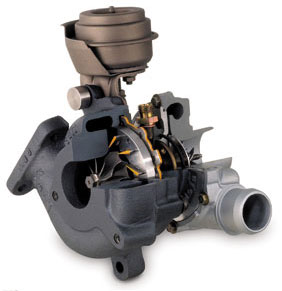 The days when a big barrel of multigrade sufficed for all workshop oil changes have long gone. Engine tolerances and performance parameters are more demanding than ever, and lubricant manufacturers have responded with highly advanced oils.
The days when a big barrel of multigrade sufficed for all workshop oil changes have long gone. Engine tolerances and performance parameters are more demanding than ever, and lubricant manufacturers have responded with highly advanced oils.
Each oil performs differently to suit the engine’s specific characteristics; for example many of today’s oil formulations have high detergency and dispersancy, to loosen contaminants and keep them in suspension. The larger particles are contained in the filter, and the smaller particles flow out when the oil is drained. This is why it’s vital that the oil and filter are changed at the manufacturer’s recommended intervals; if the filter is overloaded and the old oil circulates too long, the particles will remain in the system and eventually be ground into the turbo bearings.
While highly effective for many turbocharged engines, including older diesels, these high detergent oils are not recommended for modern diesels fitted with a DPF (Diesel Particulate Filter). The detergents can result in ash formed during combustion blocking the DPF, with detrimental effects on emissions, performance and economy. Instead, these engines need Low SAPs (Sulphated Ash, Phosphorous and Sulphur) oils, specifically designed to prevent ash build-up. Consequently, it’s absolutely imperative to check the oil specification stipulated by the vehicle manufacturer, and keep to their recommendations.
BTN and Comma share expertise
BTN Turbo is working with Comma to make valuable industry knowledge freely available to technicians and motorists. The companies have united to produce a range of support materials packed with useful data and essential advice. Its information that can save technicians time, expense and hassle, and help improve their service to customers.
BTN Turbocharger Advice
Choose the right oil, keep to the VM service schedule and follow the advice on BTN Turbo’s website. The Turbo Tech section includes videos, fact sheets and a fault diagnostic tool to help you solve, and ideally avoid, those expensive and frustrating turbo problems.



